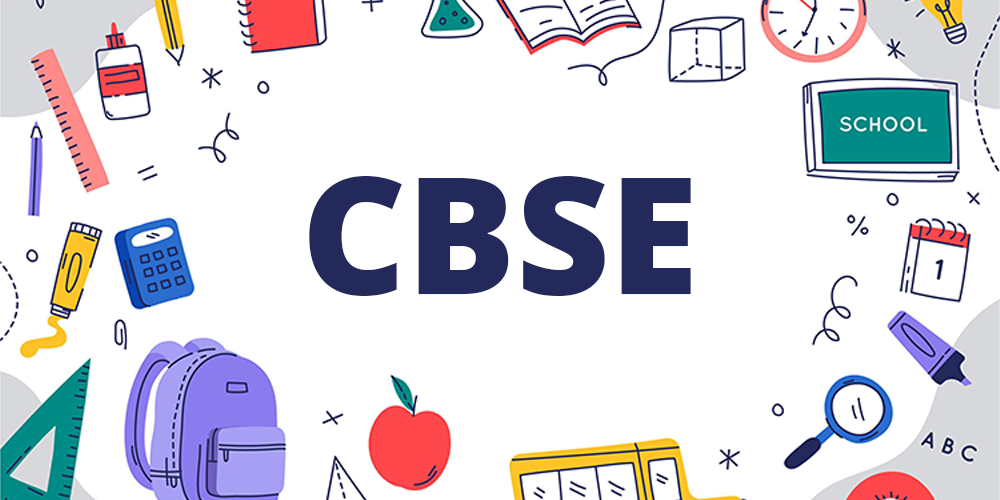CBSE Introduces Significant Changes for Classes 9 to 12 in 2025: What Students Need to Know

The Central Board of Secondary Education (CBSE), one of India’s premier educational bodies, has rolled out a series of transformative changes for students in Classes 9 to 12 starting in 2025. These updates align with the National Education Policy (NEP) 2020 and aim to modernize the education system, emphasizing skill-based learning, flexibility, and a holistic approach to assessment. With the academic session 2025-26 on the horizon, students, parents, and educators must familiarize themselves with these reforms to adapt effectively. Here’s a detailed look at the key changes introduced by CBSE.
1. Shift Toward Competency-Based Education
One of the most notable changes is the increased focus on competency-based questions in examinations. These questions are designed to assess students’ ability to apply theoretical knowledge to real-world scenarios, moving away from rote memorization. For Class 12 board exams in 2025, approximately 50% of the question paper will consist of competency-based questions, up from 40% in previous years. These may include multiple-choice questions (MCQs), case-based questions, and source-based integrated questions. For Class 10, this proportion remains steady at 50%, consistent with the 2023-24 session. This shift encourages critical thinking and problem-solving skills, preparing students for practical challenges beyond the classroom.
2. Two Board Exams for Class 10 Starting 2025-26
A groundbreaking reform is the introduction of biannual board exams for Class 10 students starting from the 2025-26 academic session. Students will have the opportunity to appear for board exams twice a year—once in February and again in April. This optional system allows students to improve their scores within the same academic year, reducing the pressure of a single high-stakes exam. The best score from the two attempts will be considered for the final result. While this policy is still in the draft stage as of April 2025, its implementation is expected to begin with the 2026 Class 10 exams, affecting current Class 9 students.
3. Revised Grading System: Introduction of a 9-Point Scale
CBSE is transitioning from its traditional grading system to a 9-point scale for both Class 10 and Class 12 board exams. Unlike the earlier five-point scale (A1, A2, B1, etc.), this new system will allocate grades based on a more nuanced distribution, with every one-eighth of passing students receiving a distinct grade slot. This change aims to provide a clearer and more detailed assessment of student performance, reducing ambiguity and offering a fairer evaluation framework.
4. Increased Weightage of Internal Assessments
Internal assessments will play a more significant role in the final grades for Classes 9 to 12. Starting in 2025, internal assessments—including projects, assignments, and periodic tests—will account for 40% of the total marks, while the remaining 60% will come from the final board or annual exams. This shift emphasizes continuous evaluation over a single end-of-year performance, encouraging consistent effort and deeper engagement with the curriculum throughout the year.
5. Introduction of Skill-Based Subjects and Electives
To align with NEP 2020’s focus on vocational and skill-based education, CBSE has expanded its curriculum offerings. For Class 10, new skill-based subjects such as Information Technology, Computer Applications, and Artificial Intelligence have been introduced. Additionally, students in Classes 9 and 10 must now choose either English or Hindi as a mandatory language subject. For Class 12, four new skill electives have been added: Land Transportation Associate, Electronics and Hardware, Physical Activity Trainer, and Design Thinking and Innovation. These subjects aim to equip students with practical skills relevant to modern career paths.
6. Calculators Allowed in Class 12 Accountancy Exams
In a practical move, CBSE will permit the use of basic, non-programmable calculators during Class 12 Accountancy board exams starting from the 2025-26 session. This change acknowledges the complexity of financial calculations and aims to reduce errors, allowing students to focus on conceptual understanding rather than manual computation.
7. Enhanced Teaching Methods
CBSE is pushing for innovative teaching practices to make learning more engaging and relevant. Schools are now encouraged to adopt:
- Project-Based Learning: Students will tackle real-life problems to enhance practical understanding.
- Inquiry-Driven Education: Emphasis on questioning and exploration over memorization.
- Tech-Enabled Learning: Integration of AI tools, digital resources, and online platforms in classrooms. These methods aim to foster curiosity, creativity, and adaptability among students.
8. Attendance and Special Provisions
To maintain discipline and eligibility, CBSE has mandated a minimum of 75% attendance for students to qualify for board exams in 2025. Exceptions are allowed for medical emergencies or participation in national/international sports events and Olympiads, provided proper documentation is submitted. Additionally, special exams will be conducted for students whose board exam dates clash with such events, ensuring they can balance academics and extracurricular commitments.
9. Security Enhancements and Infrastructure Improvements
For the 2025 board exams, CBSE is implementing stricter security measures, including biometric authentication, digital fingerprinting, and face-matching to prevent cheating and impersonation. All exam centers must now have CCTV cameras installed in examination halls, with non-compliant schools disqualified from hosting exams. Furthermore, CBSE is opening a sub-regional office in Agartala to improve educational infrastructure and support in the region.
10. No Syllabus Reduction for 2025 Exams
Despite earlier speculation, CBSE has clarified that there will be no 15% syllabus reduction for the 2025 board exams for Classes 10 and 12. The curriculum remains unchanged, and students should prepare based on the full syllabus available on the official CBSE website. Reports of open-book exams for select subjects have also been debunked, with such trials limited to Classes 9 and 11 as pilot projects.
Looking Ahead: A Step Toward Holistic Education
These changes reflect CBSE’s commitment to evolving with global educational standards while addressing the diverse needs of Indian students. The emphasis on competency-based learning, skill development, and flexible assessment options signals a shift toward a more student-centric system. As the 2025 board exams approach, starting February 15, students are advised to adapt their study strategies—focusing on application-based practice, consistent performance in internal assessments, and mastering new skill-based subjects.
For the latest updates and detailed syllabi, students and educators should regularly check the official CBSE website (cbse.gov.in). With these reforms, CBSE is paving the way for a future-ready education system, empowering students to thrive in an increasingly dynamic world.
- Log in to post comments
